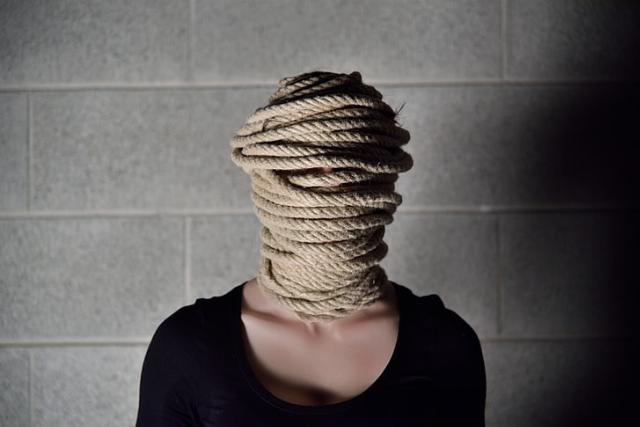The anxiety of snowflakes
Anxiety is a most mutable condition. How like the Cancel Culture to ignore all its many shapes, save that by which it tries to justify its tyranny.
The most pervasive excuse offered by the fascists on the academic Left for their censorship has been their alleged therapeutic concern to shield their "snowflake" students from anxiety. The hypocrisy of that claim is demonstrated by all the forms of anxiety such censorship creates but which the Left has never seen fit to acknowledge. Here are three examples.
First, consider the implications for education, which is supposed to provide preparation for the real world after graduation. The decisions that the Cancel Culture makes about which narratives are "safe" inevitably means others are deemed "unsafe." Students are thus denied the opportunity of learning how to deal with those other issues. When those students graduate into reality, their anxiety will be heightened, not lessened, by their impaired inability to deal with the unfamiliar.
Authentic education is thereby sacrificed by the absence of meaningful encounters with "controversial" issues. Eliminating "controversy" ensures education is incomplete. Again, that guarantees greater anxiety upon graduation.
Second, even before they graduate, college students need some level of anxiety for their development to thrive. The attempt to remove anxiety is actually a way to  increase it if carried too far. Anxiety is a crucial element in academics, just as it is in athletics, because out of it springs greater creativity, effort and learning. As philosopher Søren Kierkegaard put it: "He who is educated by anxiety is educated by possibility, and only he who is educated by possibility is educated to his infinitude... Whoever has truly been brought up by possibility has grasped the terrible as well as the joyful."
increase it if carried too far. Anxiety is a crucial element in academics, just as it is in athletics, because out of it springs greater creativity, effort and learning. As philosopher Søren Kierkegaard put it: "He who is educated by anxiety is educated by possibility, and only he who is educated by possibility is educated to his infinitude... Whoever has truly been brought up by possibility has grasped the terrible as well as the joyful."
Third, and probably most important, any selectivity imposed by college administrators inevitably creates more anxieties caused by such "tender loving care." For example, surveys at different schools repeatedly show that far too many students feel the debilitating need to engage in self-censorship.
- At Harvard, three-quarters of students surveyed said they were not comfortable disagreeing with a professor on politics
- At Yale, 58 percent of students felt intimidated in voicing an opinion different from a professor's
- At the University of North Carolina, a study found "students didn't feel free to speak their minds"
- More generally, a survey of 55,000 students at 254 American colleges found similar results
Self-censorship has a root cause: anxiety. Students are fearful in an environment that imposes the fear of being shunned, shamed, or otherwise punished if they dare to express opinions deemed politically incorrect. Compounding that anxiety is the fact that the disapproved narratives keep shifting, so the anxiety of confusion adds to the fear of being punished. How awful it must be for modern students to feel the anxiety that their thoughts are not only unacceptable to their professors and college administrators but possibly also to their similarly cowed and silent fellow students! What therefore need we think about the coerced anxiety of self-contempt, which Shelley said was "bitterer to drink than blood," and what Matthew Arnold said resulted in loss of freedom when "the mass of men concealed/Their thoughts, for fear if revealed... would... be met... with blame..."?
The management of natural anxiety is of importance. Individuals have traditionally had the primary responsibility for its successful management. Resources can be made available for times when individual students are unequal to that task. The issue is not whether anxiety should be managed, but rather by what means, by whom, and for what purposes. If it is done by self-appointed third-party authoritarians to promote Cancel Culture agendas, while it creates the greater anxieties which pursuit of that goal inevitably produces, then the Cancel Culture's hypocrisy is unmistakably revealed.
Image: PickPik





